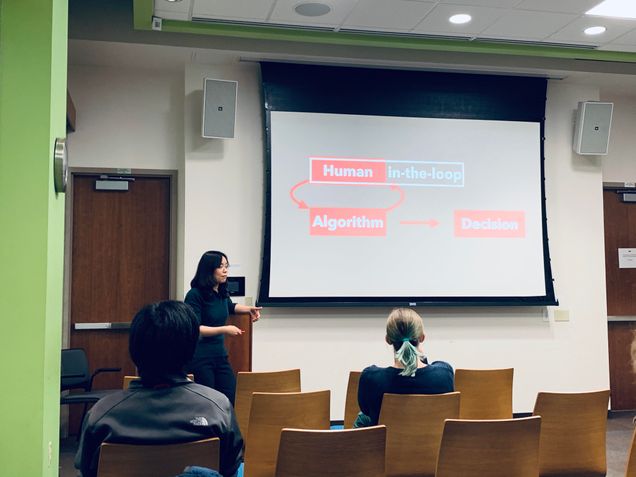Professor Yiling Chen on How Algorithms Can Improve Decision-Making

How can we make algorithms that are fair, transparent, and better than what they are today? This is the question Gordan McKay Professor Yiling Chen from Harvard University answered in her talk on algorithm-in-the-loop decision-making last week. Professor Chen spoke as a part of the Cyber Alliance Speaker Series. She is interested in analyzing and designing social computing systems according to computational and economic objectives, especially topics such as behavioral experiments, algorithmic game theory, and machine learning.
Algorithm-in-the-loop decision-making is a term used to describe a type of decision-making in which a generated algorithm assists humans in making a decision. This way of using algorithms can minimize gender and racial bias while also providing humans with helpful information to make a logical decision. Another key component to an accurate algorithm result is the input, which has to paint an accurate picture of reality.

For example, when predicting the level of threat of people who have committed crimes, an algorithm could output an opposite (e.g. a high threat level for a woman who had committed petty theft versus a low threat level for a man who had several homicide charges on his record). According to Professor Chen, this is why risk assessments are only very carefully applied to the judicial system. Professor Chen found that when given the algorithm-generated risk assessment, humans were more accurate in predicting when given versus without.
The Cyber Alliance Speaker Series is a collaboration between the BU School of Law and the Hariri Institute to hear new perspectives on an intersection between law, technology, and policy.